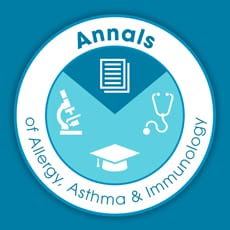No one needs to wonder whether we have all become more stressed, more anxious, and even more depressed in the past six months amid the worst pandemic in over 100 years. Fear of infection with the possibility of illness is accompanied by frustrations and anxieties over the adverse impact that this virus has had on our lives – personal and professional. Most of us are creatures of habit. We like what we like, the way we like it, and when we like it. In the beginning of the pandemic, we were all scared enough that when the shutdown occurred, most of us were more worried about ourselves, our families, and friends than we were about our businesses. Masks, social distancing, and extreme hygienic measures all seemed reasonable, at least initially. As the country reopened this summer, many of these precautions were relaxed. Now, we are in the midst of an upturn in the cases of COVID-19 throughout our country and around the world. Dramatic changes in lifestyles and life events present daily challenges to all of us. These types of stressors have been found to alter immunity and affect various inflammatory diseases, such as allergy and asthma.

It is somewhat serendipitous that the emphasis for this month’s Annals issue on stress and allergy would come now, because it was planned well over a year ago. As we and our families are experiencing higher levels of chronic stress perceptions, anxiety, and depression, so are most of our patients. It is fundamentally important for us to understand the targets of chronic stress from the neuroendocrine and autonomic nervous influences on immune organs, networks and cells. There are impacts from external events and internal challenges (psychological and physical). A better and deeper understanding of the mind-body relationships is critical if we, as allergists-immunologists, are to address the whole patient to whom we are committed to render optimal care.
This month’s issue features several articles in different formats that should allow readers to improve and increase their fund of knowledge and develop appreciation to the extent that stress can adversely affect our patients and how we can begin to identify and even intervene against these disease-exacerbating influences.
In a basic approach, Theoharis C. Theoharides, MS, MPhil, PhD, MD, begins at the cellular level by describing the adverse impact of psychological stress on mast cell function through neuroendocrine pathways that involve corticotropin-releasing hormone, neurotensin, and substance P. This increased mast cell sensitivity and the activity is further enhanced by the allergic inflammatory milieu-producing cytokines, such as interleukin 33. Such diverse illnesses,as asthma, atopic dermatitis, and mastocytosis seem to be particularly susceptible to stress-mediated mast cell activation. Eyal Oren, MD, PhD, and Fernando D. Martinez, MD, move to the whole-body physiological consequences of chronic excessive stress that can translate into increases in both incidence of new asthma and exacerbation of the existing disease. They succinctly review the progression from neuroendocrine pathways to altered inflammatory responses to clinical comorbidities indicating long-term effects of stress. For example, children with significant life stressors can manifest increased incidence and severity of asthma as adolescents and adults, extending even to such practical applications as decreased responsiveness to long- and short-acting bronchodilators during a time of high stress.
I hope these and other articles will stimulate you to think more about psychological dysfunction in your patients. If nothing more than appropriate mental health professional referral, being willing to recognize and address these issues in our patients (and perhaps in ourselves and our staffs) will ultimately improve the quality of care we provide to our patients. Please stay safe and healthy this fall.
Gailen D. Marshall, Jr., MD PhD FACAAI
Editor-in-chief

